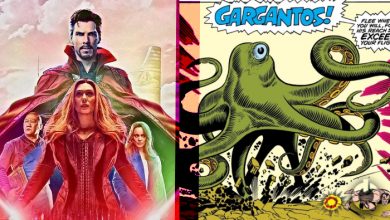If you’re a Phineas and Ferb fan, you’d know what one-hit wonder means (cue: break into Bow Chika Wow Wow). For the uninitiated, a one-hit wonder is any piece of art that brought an artiste considerable fame, but remained their only significant work.
Think Aqua’s Barbie Girl or It’s Raining Men by The Weather Girls. Of course, though the term is mostly used for music, there are several authors that shot to fame for a particular piece of work, but could not replicate its success and/or never wrote again (so far). Here’s counting down, in no particular order, five authors and their one-hit wonders.
- Gone With The Wind by Margaret Mitchell
Margaret Mitchell’s Gone With the Wind began as a way of spending time while she was recuperating from an ankle injury. Her immortal work, about a woman caught in the throes of the Civil War and its terrible aftermath, and her single-minded obstinacy to survive, echoed with readers long after the book was published in 1936.
That, and the immortal story of Scarlett and Rhett Butler ensured that the book became a favourite of every reader. The book remained the only one published in her life time, and the only one for which she is remembered.
Subsequently, several authors attempted to recreate the magic of the book through sequels and parodies- none of which could hold a candle to the original.
- The God of Small Things by Arundhati Roy
The 1997 Man-Booker winning novel, The God of Small Things, was the only fictional piece of work writer-activist Arundhati Roy ever wrote. Roy drew heavily from her personal experiences in creating the characters.
The novel, which creates a synaesthetic experience of Kerala, addresses forbidden love, class, molestation and the patriarchy through the story of a pair of fraternal twins and their divorcee mother. Roy went on to write excellent non-fictional articles, but has not written another novel since her maiden attempt.
- The Bell Jar by Sylvia Plath
While Plath is remembered mostly for her poetry ( Who doesn’t love Mad Girl’s Love Song and Daddy?), Plath’s magnum opus has always been The Bell Jar. The semi-autobiographical novel continues to be read years after its first publication in 1963, mostly because the novel captures Plath’s slow mental and emotional decay through the novel’s protagonist, Esther Greenwood. Plath committed suicide a short while after writing the novel.
- To Kill a Mockingbird by Harper Lee
As any litterateur will confirm, Harper Lee’s To Kill a Mockingbird is one of the best books of the 20th Century. The classic novel about a white man defending a black man accused of raping a white girl in the deep South, told from the perspective of a young girl, Scout, shot to instantaneous fame.
Atticus Finch became every literary addict’s favourite lawyer and father for generations to come, and Harper Lee won the Pulitzer for the book, but never went on to write anything as significant. While her contribution to Truman Capote’s In Cold Blood was (incorrectly) considered minimal, Go Set a Watchman was a complete disappointment to Atticus’s fans.
- Harry Potter series by J.K. Rowling
While there’s no denying the magic of Harry Potter, the fact remains that besides the books in the series and its spin-off novels (Fantastic Beasts and Where to Find Them, Quidditch Throughout the Ages), Rowling has not achieved considerable success. The Casual Vacancy and the Cormoran Strike series, even when looked at in isolation, are just about above average. The fact is, the Harry Potter series is insuperable, even by the queen of magic herself.






